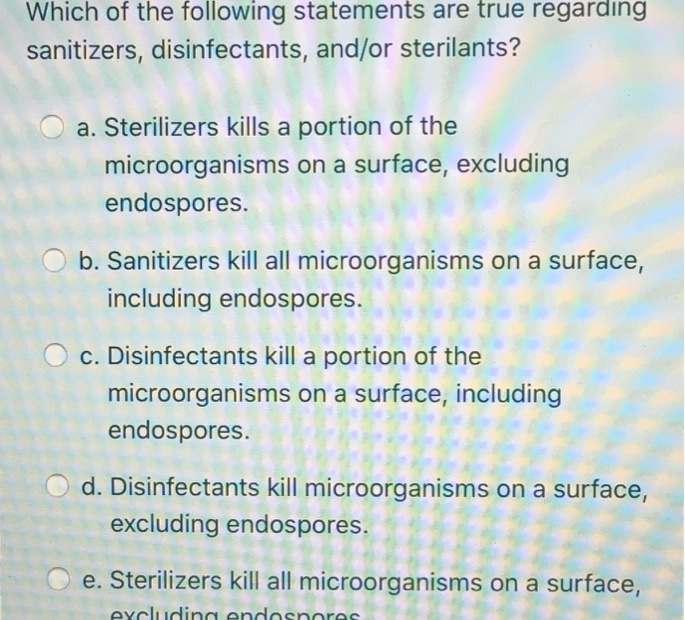Can Endospores Be Killed By Disinfectants: Exploring Their Vulnerability
Spores (Endospores) | Microbiology 🧫 And Infectious Diseases 🦠
Keywords searched by users: Can endospores be killed by disinfectants are spores easily killed by cooking, spores can be destroyed by temperatures above, does sterilisation kill all microorganisms, spores are killed by autoclaving, bacterial spores can be destroyed by, spores are killed by glutaraldehyde, spores are killed by mcq, endospores can be killed by quizlet
What Disinfectant Kills Endospores?
Hydrogen peroxide is a widely employed disinfectant with the capability to eliminate endospores, the highly resilient dormant forms of certain bacteria. Specifically, it is effective against spores that lack most α/β-type small, acid-soluble spore proteins (SASPs) by inducing DNA damage within the spore. This means that hydrogen peroxide has the ability to penetrate the protective outer layers of the spore and target its genetic material. This information was elucidated in a study by Setlow and Setlow in 1993, shedding light on the mechanisms through which hydrogen peroxide achieves spore eradication.
Are Endospores Resistant To Chemical Disinfectants?
Do endospores exhibit resistance to chemical disinfectants? Indeed, endospores possess a remarkable resilience against a variety of environmental challenges. These resilient structures are particularly impervious to chemical disinfectants, such as alcohol, due to their robust protective layers. Additionally, endospores can withstand the damaging effects of ultraviolet radiation, survive in extreme pH conditions, endure prolonged periods of drought, and persist even when nutrient supplies are scarce. This extraordinary resistance is a key feature that sets endospores apart from other microorganisms, making them a significant concern in the context of sterilization and sanitation processes.
Can Spores Be Killed By Surface Disinfectant?
Can surface disinfectants effectively eliminate spores? Unlike sterilization, which guarantees the complete destruction of all microorganisms, disinfection methods generally do not possess sporicidal properties. However, it is worth noting that some disinfectants can effectively kill spores, but this typically requires prolonged exposure times ranging from 3 to 12 hours. These particular disinfectants are often referred to as chemical sterilants, as they have the capability to achieve a level of microbial destruction equivalent to sterilization when used under specific conditions. This information underscores the importance of understanding the characteristics and capabilities of various disinfection agents in healthcare and other settings.
Update 32 Can endospores be killed by disinfectants




Categories: Found 22 Can Endospores Be Killed By Disinfectants
See more here: c1.chewathai27.com

Most disinfectants such as household cleaning products, alcohols, quaternary ammonium compounds and detergents have little effect on endospores. However, sterilant alkylating agents such as ethylene oxide (ETO), and 10% bleach are effective against endospores.Hydrogen peroxide is another commonly used sporicide. This agent can kill spores of strains that lack most α/β-type SASP by DNA damage (Setlow and Setlow 1993). Thus, H2O2 can enter the spore core.Endospores are resistant to chemical agents (including alcohol), ultraviolet radiation, extreme pH gradients, drought, and nutrition depletion.
Learn more about the topic Can endospores be killed by disinfectants.
- Endospore – Wikipedia
- What’s new and notable in bacterial spore killing! – PMC – NCBI
- Why Are Bacterial Spores Hard To Sterilize?
- IntroductionDisinfection & Sterilization Guidelines – CDC
- Chemical Disinfectants | Guidelines Library | Infection Control
- What are Endospores & Endotoxins | QI Medical, Inc.
See more: c1.chewathai27.com/category/money-policy
